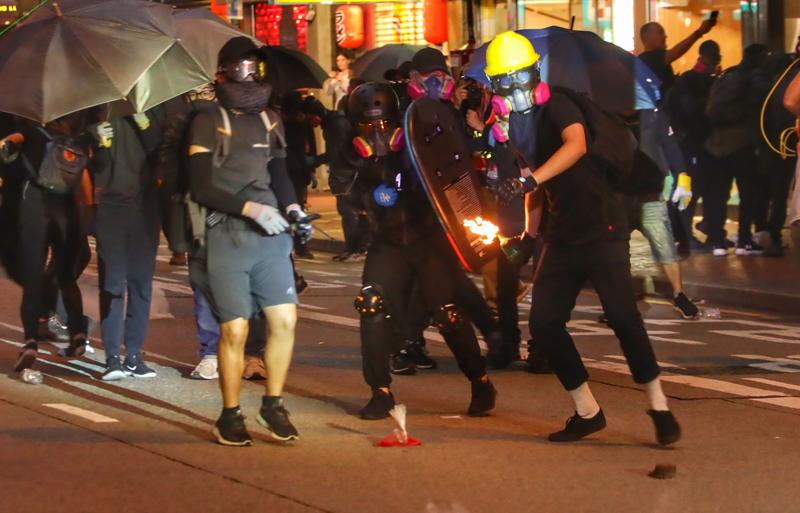Hong Kong's anti-mask law legal, reasonable, necessary: China Daily editorial
China Daily | Updated: 2019-10-07 20:21

The vandalism and wanton violence across Hong Kong over the long weekend show why the just-announced anti-mask law, and possibly other emergency measures, are necessary to restore order in the special administrative region.
The law, enacted by invoking the Emergency Regulations Ordinance on Friday, forbids participants of public rallies, authorized or not, to hide their identities by covering their faces. Offenders are subject to a maximum penalty of one year in prison and a HK$25,000 ($3,187) fine.
Even before the law came into effect at midnight on Friday, radical elements, apparently angered by the announcement by Chief Executive Carrie Lam Cheng Yuet-ngor of the new legal tool aimed at curbing their anti-social activities, started trashing subway stations and public and private property across the city. People confronting them with dissenting opinions were viciously attacked.
With the secretary for justice in the SAR assuring the public that the city's legal framework will ensure the new law does not infringe on freedom of expression, the anti-mask law should be an effective tool to curb the rioting that has plagued Hong Kong over the past four months.
The new law might not scare off the core rioters and ringleaders, but their following will surely shrink in the long run. Masked rioters tend to have no reservations about engaging in destructive actions as, with their identities hidden, they do not have to worry about the legal or moral ramifications. With no anonymity, the rioters will have to face the consequences of their hooliganism.
The last British governor of Hong Kong, Chris Patten, who likes to try and claim the moral high ground with his jaundiced view of Hong Kong affairs, described the enactment of the law as "madness". If banning masks is madness, it is a madness shared by many Western countries, including the United States, France, Germany, Spain and Canada, all of which have such a law. The United Kingdom banned the covering of faces in response to rioting in 2011. And it was the British colonial government that first introduced the Emergency Regulations Ordinance in 1922 to deal with a seamen's strike in the colony, and it invoked the ordinance during the social upheavals in the 1960s.
Most of the colonial laws in Hong Kong continued to be in force after 1997 unless they were inconsistent with the Basic Law, and there is nothing illegal or wrong in applying the Emergency Regulations Ordinance. That the local court rejected an application by the opposition camp for an injunction against the anti-mask law proved that.
Although a step in the right direction, the anti-mask law alone is unlikely to be sufficient to restore peace and social stability in the SAR, since local and foreign forces that are determined to cause grave trouble in the city as a way to curb the rise of China are behind the turmoil. Therefore, more emergency measures may need to be forthcoming to end the violence and support the SAR government's dialogue platforms.
























